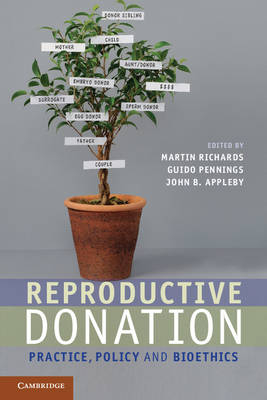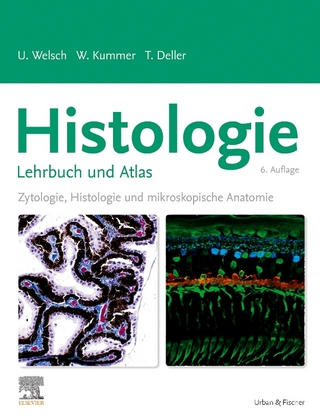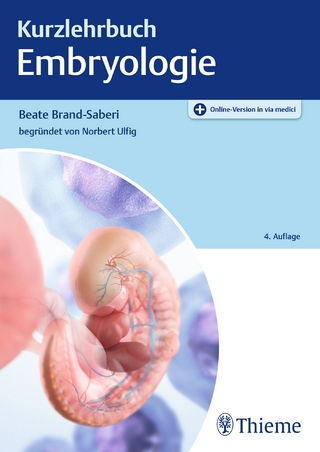
Reproductive Donation
Cambridge University Press (Verlag)
978-0-521-18993-4 (ISBN)
Reproductive donation is the most contentious area of assisted reproduction. Even within Europe there are wide variations in what is permitted in each country. This multidisciplinary book takes a fresh look at the practices of egg, sperm and embryo donation and surrogacy, bringing together ethical analysis and empirical research. New evidence is offered on aspects of assisted reproduction and the families these create, including non-traditional types. One of the key issues addressed is should children be told of their donor origin? If they do learn the identity of their donor, what kinds of relationships may be forged between families, the donor and other donor sibling families? Should donation involve a gift relationship? Is intra-familial donation too close for comfort? How should we understand the growing trend for 'reproductive tourism'? This lively and informed discussion offers new insights into reproductive donation and the resulting donor families.
Martin Richards is Emeritus Professor of Family Research in the University of Cambridge Centre for Family Research, which he founded and directed until 2005. His research concerns the psychosocial aspects of new reproductive and genetic technologies and the social and ethical issues that deployment of new technologies may raise. He publishes widely in academic journals. His books include: The Troubled Helix: Social and Psychological Implications of the New Human Genetics, edited with Theresa Marteau (1996); The Limits of Consent: A Socio-Ethical Approach, edited with John McMillan et al. (2009); Regulating Autonomy: Sex, Reproduction and Families, edited with Shelley Day-Slater et al. (2009) and Birthrights or Rites, edited with Fatemeh Ebtehaj et al. (2011). Guido Pennings is Professor of Ethics and Bioethics at Ghent University where he is also the Director of the Bioethics Institute, Ghent. He mainly publishes on ethical problems associated with medically assisted reproduction and genetics including sex selection, gamete donation, stem cell research, fertility preservation and pre-implantation genetic diagnosis. In addition, he is Affiliate Lecturer in the Faculty of Politics, Psychology, Sociology and International Studies at Cambridge University and Guest Professor on 'Ethics in Reproductive Medicine' at the Faculty of Medicine and Pharmaceutical Sciences of the Free University, Brussels. John Appleby is currently a Wellcome Trust PhD student in bioethics at the Centre for Family Research and a member of Corpus Christi College at the University of Cambridge.
1. Introduction Martin Richards, Guido Pennings and John B. Appleby; 2. The biology of donation Martin Johnson; 3. Ethics for reproductive donation Robert Klitzman; 4. Parenthood: whose right is it anyway? Anja Karnein; 5. Reproductive donation: global perspectives and cultural diversity Zeynep B. Gürtin and Effy Vayena; 6. UK and USA perspectives on the regulation of reproductive donation Theresa Glennon; 7. Gamete and embryo donation: a legal view from Spain Yolanda Garcia-Ruiz and Diana Guerra-Diaz; 8. The legal and ethical regulation of transnational donation Guido Pennings and Zeynep B. Gürtin; 9. Balancing ethical criteria for the recruitment of gamete donors Guido Pennings, Effy Vayena and Kamal Ahuja; 10. Challenges in intra-family donation Effy Vayena and Susan Golombok; 11. ARTs and the single parent Susanna Graham and Andrea Braverman; 12. Reproductive donation and justice for gay and lesbian couples John B. Appleby, Sarah Jennings and Helen Statham; 13. Is disclosure in the best interests of the children conceived by donation? John B. Appleby, Lucy Blake and Tabitha Freeman; 14. Identifiable donors and siblings: implications for the future Tabitha Freeman, John B. Appleby and Vasanti Jadva; 15. Ethical issues in embryo donation Fiona MacCallum and Heather Widdows; 16. Reproduction through surrogacy: the UK and USA experience Andrea Braverman, Polly Casey and Vasanti Jadva; 17. Some conclusions regarding the interaction of normative and descriptive elements in reproductive donation Guido Pennings.
| Erscheint lt. Verlag | 5.7.2012 |
|---|---|
| Zusatzinfo | 1 Tables, black and white |
| Verlagsort | Cambridge |
| Sprache | englisch |
| Maße | 152 x 228 mm |
| Gewicht | 540 g |
| Themenwelt | Medizin / Pharmazie ► Gesundheitswesen |
| Medizin / Pharmazie ► Medizinische Fachgebiete ► Medizinethik | |
| Studium ► 1. Studienabschnitt (Vorklinik) ► Histologie / Embryologie | |
| Studium ► 1. Studienabschnitt (Vorklinik) ► Med. Psychologie / Soziologie | |
| Studium ► Querschnittsbereiche ► Geschichte / Ethik der Medizin | |
| ISBN-10 | 0-521-18993-4 / 0521189934 |
| ISBN-13 | 978-0-521-18993-4 / 9780521189934 |
| Zustand | Neuware |
| Informationen gemäß Produktsicherheitsverordnung (GPSR) | |
| Haben Sie eine Frage zum Produkt? |
aus dem Bereich


